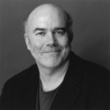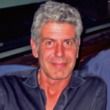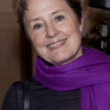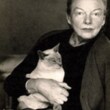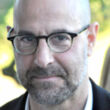The Man Who Ate Too Much: The Life of James Beard
(Libby/OverDrive eAudiobook)
Available Platforms
Description
More Details
Similar Titles From NoveList
Similar Authors From NoveList
Published Reviews
Booklist Review
Before a herd of Americans called themselves foodies, James Beard pioneered the way. Publishing dozens of cookbooks, he brought respect to American cooking and wrote recipes that people genuinely hoped to follow to impress friends and family. His fame did not come without personal cost. As Birdsall (Hawker Fare, 2018) recounts Beard's life, Beard struggled to conceal his sexuality from a public not then receptive to gay people. As Beard gained fame, hosted a television cooking show, and made personal appearances, he guarded a secret life. His friends and colleagues understood him and his sexuality as well as gastronomic tastes, and he was allowed to be different so long as the public would never know, no matter their suspicions. Beard could be difficult. He passed off others' work as his own. He wrote poor prose that sympathetic editors revised. He plagiarized himself, duplicating recipes from earlier books and magazine articles. Nevertheless, Beard remains the undisputed dean of American cookery, and the personal predilections he worked so hard to hide wouldn't raise an eyebrow today.
Publisher's Weekly Review
Legendary cookbook author James Beard (1903--1985) remade the American palate while carefully hiding his homosexuality, according to this zesty biography. Food writer and cookbook author Birdsall (Hawker Fare) styles Beard the Walt Whitman of 20th-century cooking: he championed fresh, local, seasonal fare against processed and frozen foods, and pioneered New American cuisine by applying French cooking methods to simple American classics. (He invented the gourmet hamburger while running a hamburger stand in Nantucket in 1953, and wrote groundbreaking works on cocktail hors d'oeuvres and outdoor cooking.) In Birdsall's colorful portrait, Beard is a larger-than-life figure with a six-foot-three-inch, 300-pound bulk, a charisma developed from theater training, and the Rabelaisian tag-line "'I love to eat!'"; on the shadier side, he padded books with previously published recipes and plagiarized some from other authors. Birdsall highlights Beard's homosexuality, which he kept closeted until late in life to avoid alienating mainstream readers while subtly negotiating the fraught gender politics of men in kitchens. Birdsall's narrative offers a tangy portrait of the backstabbing world of post-WWII food writing along with vivid, novelistic evocations of Beard's flavor experiences ("The ham was salty and pungent. Its smokiness and moldy specter would linger as the first taste of the coast"). The result is a rich, entertaining account of an essential tastemaker. Photos. (Oct.)
Library Journal Review
After winning the James Beard Award for his essay "America, Your Food Is So Gay," Birdsall wondered how James Beard (1903--85) rose to become the beloved "dean of American food." This engaging biography sheds insight, and describes Beard's complicated life. Though Robert Clark's James Beard: A Biography revealed aspects of Beard's private life, Birdsall examines it more closely, placing it into historical context by recounting the oppression gay men faced at the time. Ever fearful of being outed, Beard habitually destroyed personal mementos, but Birdsall used published material and private letters, conducted personal interviews, scoured Beard's appointment books (complete with menu notes), and examined photographs to write this vivid, detailed biography. The well-balanced narrative describes both high points in Beard's life, such as his groundbreaking TV cooking show in 1946, as well as less celebratory topics, including his sometimes-ruthless ambition; battles with weight, loneliness, and depression; and Me Too moments. VERDICT Highly recommended, this book offers new insight into Beard's life and time. It also helps another generation of foodies appreciate how Beard shaped American cuisine and helps all of us better understand the struggles LGBQT people faced in the mid-20th century.--Bonnie Poquette, Milwaukee
Kirkus Book Review
The author of the groundbreaking article, "America, Your Food Is So Gay," turns a sharp but sympathetic eye on the carefully closeted food writer who celebrated the glories of homegrown ingredients and down-home cooking decades before they were fashionable. Born in Portland, Oregon, James Beard (1903-1985) told friends later in life that he'd known he was gay since he was 7. During his freshman year at Reed College, he was quietly expelled after being "caught in an act of oral indecency with a professor." He spent a desultory decade or so trying to make it as an actor and finally hit his stride in New York, where he started a cocktail catering business with an acquaintance made through his prodigious socializing. In 1940, his first book, Hors D'Oeuvre and Canapés, With a Key to the Cocktail Party, began a lifelong tradition of not acknowledging collaborators or the sources of recipes that were sometimes lifted from others and, later in his career, reprinted from his earlier books. What sold even the most mediocre of his books was his larger-than-life personality: "playful and unabashedly queer," Birdsall notes, but only to those in the know. For average Americans, Beard was simply someone who demystified cooking and invited them to enjoy food as he did. The author's well-written and knowledgeable text doesn't scant Beard's cooking and eating--indeed, luscious descriptions of memorable meals make this an appetite-arousing read--but its major secondary theme is the nature of gay life in midcentury America, where discretion was essential and discovery meant professional ruin and very likely jail. Birdsall's analysis of Beard's ambivalent reaction to the Stonewall Inn riot of 1969 is one of the book's many intelligent passages decoding a worldview built on shame and secrecy, one that made Beard frequently unhappy and lonely despite his fame and success. A thoughtful appreciation of a central figure in the story of American food culture. Copyright (c) Kirkus Reviews, used with permission.
Booklist Reviews
Before a herd of Americans called themselves foodies, James Beard pioneered the way. Publishing dozens of cookbooks, he brought respect to American cooking and wrote recipes that people genuinely hoped to follow to impress friends and family. His fame did not come without personal cost. As Birdsall (Hawker Fare, 2018) recounts Beard's life, Beard struggled to conceal his sexuality from a public not then receptive to gay people. As Beard gained fame, hosted a television cooking show, and made personal appearances, he guarded a secret life. His friends and colleagues understood him and his sexuality as well as gastronomic tastes, and he was allowed to be different so long as the public would never know, no matter their suspicions. Beard could be difficult. He passed off others' work as his own. He wrote poor prose that sympathetic editors revised. He plagiarized himself, duplicating recipes from earlier books and magazine articles. Nevertheless, Beard remains the undisputed dean of American cookery, and the personal predilections he worked so hard to hide wouldn't raise an eyebrow today. Copyright 2020 Booklist Reviews.
Library Journal Reviews
A two-time James Beard Award-winning author and former restaurant critic, Birdsall offers the first biography in a generation of James Beard, who significantly shaped American cuisine yet remained painfully alone as a closeted gay man.
Copyright 2020 Library Journal.Library Journal Reviews
After winning the James Beard Award for his essay "America, Your Food Is So Gay," Birdsall wondered how James Beard (1903–85) rose to become the beloved "dean of American food." This engaging biography sheds insight, and describes Beard's complicated life. Though Robert Clark's James Beard: A Biography revealed aspects of Beard's private life, Birdsall examines it more closely, placing it into historical context by recounting the oppression gay men faced at the time. Ever fearful of being outed, Beard habitually destroyed personal mementos, but Birdsall used published material and private letters, conducted personal interviews, scoured Beard's appointment books (complete with menu notes), and examined photographs to write this vivid, detailed biography. The well-balanced narrative describes both high points in Beard's life, such as his groundbreaking TV cooking show in 1946, as well as less celebratory topics, including his sometimes-ruthless ambition; battles with weight, loneliness, and depression; and Me Too moments. VERDICT Highly recommended, this book offers new insight into Beard's life and time. It also helps another generation of foodies appreciate how Beard shaped American cuisine and helps all of us better understand the struggles LGBQT people faced in the mid-20th century.—Bonnie Poquette, Milwaukee
Copyright 2020 Library Journal.Publishers Weekly Reviews
Legendary cookbook author James Beard (1903–1985) remade the American palate while carefully hiding his homosexuality, according to this zesty biography. Food writer and cookbook author Birdsall (Hawker Fare) styles Beard the Walt Whitman of 20th-century cooking: he championed fresh, local, seasonal fare against processed and frozen foods, and pioneered New American cuisine by applying French cooking methods to simple American classics. (He invented the gourmet hamburger while running a hamburger stand in Nantucket in 1953, and wrote groundbreaking works on cocktail hors d'oeuvres and outdoor cooking.) In Birdsall's colorful portrait, Beard is a larger-than-life figure with a six-foot-three-inch, 300-pound bulk, a charisma developed from theater training, and the Rabelaisian tag-line "‘I love to eat!'"; on the shadier side, he padded books with previously published recipes and plagiarized some from other authors. Birdsall highlights Beard's homosexuality, which he kept closeted until late in life to avoid alienating mainstream readers while subtly negotiating the fraught gender politics of men in kitchens. Birdsall's narrative offers a tangy portrait of the backstabbing world of post-WWII food writing along with vivid, novelistic evocations of Beard's flavor experiences ("The ham was salty and pungent. Its smokiness and moldy specter would linger as the first taste of the coast"). The result is a rich, entertaining account of an essential tastemaker. Photos. (Oct.)
Copyright 2020 Publishers Weekly.Reviews from GoodReads
Citations
Birdsall, J., & Henning, D. (2021). The Man Who Ate Too Much: The Life of James Beard (Unabridged). HighBridge.
Chicago / Turabian - Author Date Citation, 17th Edition (style guide)Birdsall, John and Daniel Henning. 2021. The Man Who Ate Too Much: The Life of James Beard. HighBridge.
Chicago / Turabian - Humanities (Notes and Bibliography) Citation, 17th Edition (style guide)Birdsall, John and Daniel Henning. The Man Who Ate Too Much: The Life of James Beard HighBridge, 2021.
Harvard Citation (style guide)Birdsall, J. and Henning, D. (2021). The man who ate too much: the life of james beard. Unabridged HighBridge.
MLA Citation, 9th Edition (style guide)Birdsall, John, and Daniel Henning. The Man Who Ate Too Much: The Life of James Beard Unabridged, HighBridge, 2021.
Copy Details
| Collection | Owned | Available | Number of Holds |
|---|---|---|---|
| Libby | 2 | 1 | 0 |


























